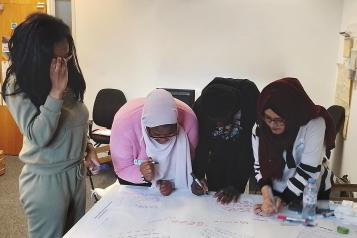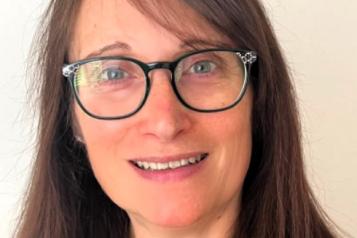Teen co-researchers tackle youth contraceptive knowledge gap
Between July 2022 and February 2023, Healthwatch Greenwich worked with a group of young people on a co-produced piece of research. The project was interested in young people’s contraceptive practices and knowledge, and specifically what they know and don’t know about LARC (long-acting reversible contraception).
Using the principles of co-production, the project brought in a group of young people as ‘co-researchers’ to support us with the design, delivery, and development of this important research project.
Oluwatoyosi Disu, 17-year-old, was one of eight co-researchers to take part. In this piece, she reflects on her involvement in the project and what it was like to interview and survey friends and peers about their contraceptive knowledge.
- Tell us what you thought about this project and its aims and methods?
The project was definitely innovative and interactive, in such a way that I have never seen in any other health organisation before. In my eyes, the purpose was not only to find out more about LARC usage amongst youth but also to educate and build a wise, informed community in the future. It provided more insight into the views and experiences of a demographic that may often feel dismissed or ignored with regard to contraception, identifying problems to be solved in the community. I feel like there was no other way to achieve this without introducing people who fit the targeted demographic into the project, such as myself, as it felt like it gave the project much more dimension.
- What was it like to take part in this project, as a young person?
It not only allowed me involvement as part of the community, but also was a very valuable experience. Talking to peers comforted those we interviewed in ways I know would’ve been hard to achieve with someone not relatable to them in any way. I got to educate myself by talking to peers and professionals, viewing things from different angles, and above all, it makes the research so much more credible to me.
- What did you enjoy the most about this project?
I think my favourite part of the project was definitely making questions for the interview. But after that, a close second is analysing my transcript and discussing popular opinions and ideas found within it with others. Both encouraged me to think in challenging ways and were greatly interesting when considering the interviewee’s background. I also loved just meeting with everyone; everyone was lovely, open minded and supportive despite having to talk about sensitive topics within sexual health and contraception.
- What skills do you feel you gained?
I learnt a lot about confidentiality and safeguarding, as well as teamwork. I think I’m able to manage myself better than I otherwise could have before the project; it really helped me mature and see healthcare and community health overall from a different angle.
- What did you find the most challenging?
Above all, it was definitely finding people to do surveys! I had to really put myself out there, and at the end of the day, although receiving many rejections, I also got many who accepted to fill them for me. But it was, arguably, the most learning experience; I would explain to those who didn’t understand certain terms, and could improve my communication skills and deepen my understanding of LARCs myself.
- What are your plans for the future?
As someone who aspires to go into medicine next year, the process of getting involved in research concerning health within my local community and having discussions with many professionals within different sectors of health concerning the research has helped to deepen my understanding of medicine as having an important social component to it as well, and of how public health is shaped by the actions of amazing local health organisations working in conjunction with the NHS and Care Quality Commission. It has taught me more than anything about the care and consideration that ought to go caring and treating another, and about how cultural and societal factors can influence health. I love the idea of a future career in medicine even more so now after this transformative experience; it has reminded me of how visceral and tangible medicine can be.

